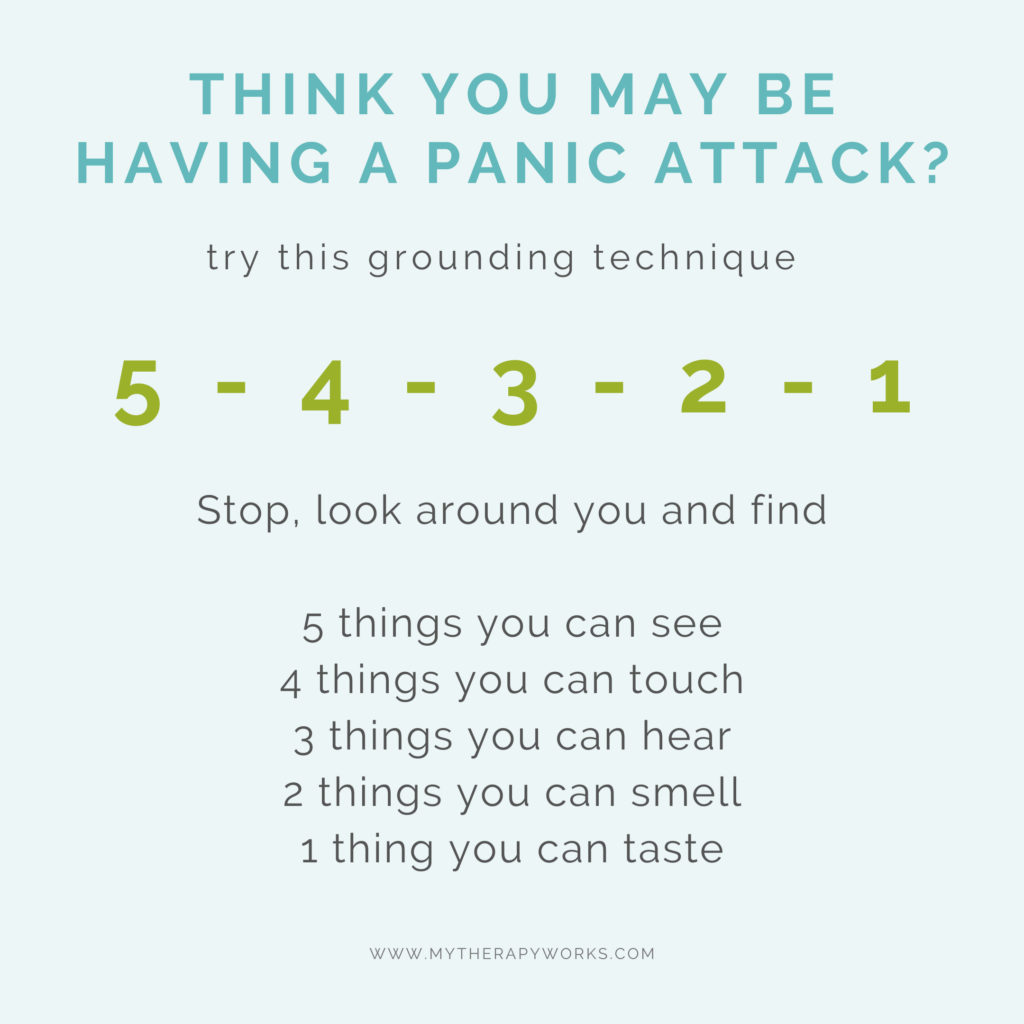Have you ever had a panic attack? Have you ever thought you were having a panic attack and wondered if it really was a panic attack? We are going to break down the signs if a panic attack, and some strategies to cope if you do have a panic attack.
What Is A Panic Attack?
When a panic attack comes one, you may start feeling lightheaded, you can actually feel your heart pounding, you may be short of breath or have chest pain. It feels like you may be having a heart attack!
According to the Anxiety and Depression Association of America, a panic attack is the abrupt onset of intense fear or discomfort that reaches a peak within minutes and includes at least four of the following symptoms:
- Palpitations, pounding heart, or accelerated heart rate
- Sweating
- Trembling or shaking
- Sensations of shortness of breath or smothering
- Feelings of choking
- Chest pain or discomfort
- Nausea or abdominal distress
- Feeling dizzy, unsteady, light-headed, or faint
- Chills or heat sensations
- Paresthesia (numbness or tingling sensations)
- Derealization (feelings of unreality) or depersonalization (being detached from oneself) Listen to this podcast.
- Fear of losing control or “going crazy”
- Fear of dying
What’s the Difference Between Anxiety and A Panic Attack?
Although anxiety is often accompanied by physical symptoms such as a racing heart or knots in your stomach, what differentiates a panic attack from other anxiety symptoms is the intensity and duration of the symptoms. According to the AADA, panic attacks typically reach their peak level of intensity in 10 minutes or less and then begin to subside.
What Causes Panic Attacks
The challenge with panic attacks is that they can occur unexpectedly during a calm state or, more predictably, in an anxious state. Panic attacks are a defining characteristic of panic disorder, but people can also experience panic attacks in the context of other psychological disorders (i.e. social anxiety disorder and obsessive-compulsive disorder).
How To Cope With A Panic Attack
First, breathe. You’re going to be okay. Breathe and remember that you’ve been in this place before. You’ve been this uncomfortable and anxious and scared, and you’ve survived.
These feelings are painful and debilitating, but you can sit with them and eventually, they will pass.
Try this “grounding” method:
- Stop and look around you
- Find
- 5 things you can see
- 4 things you can touch
- 3 things you can hear
- 2 things you can smell
- 1 thing you can taste
This can help you when you feel like you have lost all control of your surroundings.

Other ways to get through a panic attack include:
- Deep Breathing: controlling your breathing is the most important way to get through a panic attack. Take a slow breath in through your nose, hold it for a couple of seconds, and then exhale and repeat. You can do this while standing, sitting, or laying down.
- Relax Your Muscles: Progressive muscle relaxation can help you get through a panic attacks. Start by tensing your muscle groups one at a time. Then, release the tension of these muscle groups one at a time. Pay attention to each individual muscle as you tense and relax it.
Know When To Reach Out
If you are having panic attacks more than once a month, you should talk to a therapist or counselor about it. You can talk to someone online without even needing an appointment.
Whenever you’re ready, here are ways we can help:
- Schedule an appointment – Schedule Now
- Try virtual counseling from home – Learn about telehealth
- Text WECARE to 474747 and our Client Care Coordinator will reach out
- Get to know our therapists – Meet our team!
- Share this with someone – Just send them this link
- Let’s Chat! Simply reply with an email. One of our team members will personally respond – Email us